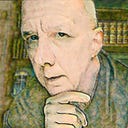Thanks, Jeff! It’s only 99 cents! So buy it, yes please! :-)
The African continent doesn’t play a role in the novella. The novella is just a short offshoot from the longer trilogy and a complete divergence from that storyline.
The main character in the novella doesn’t even show up in the trilogy — that’s how far apart the two are. The novella is just a little crime story set in the modern era, whereas the novel Restive Souls begins in the early 1800s. In the trilogy of Restive Souls, we don’t get to the modern era until Book 3, assuming I’m still alive to write it, lol.
The role Africa plays in the novella is ancillary — the overall story takes place in North America. But Africa is a huge sphere of influence in the Restive Souls trilogy, somewhat akin to how the EU or China is with us, and parts of the series will be set in a re-imagined Africa.
As for your question regarding Christianity — I absolutely agree with you that Christianity played a huge role in the oppression of Africa. The Europeans tried to impose every aspect of European life onto Africa, including religion. But the actual religion didn’t matter, whatever Europeans believed, they would have tried to impose it. As you said, it was a tool.
People have ruined Christianity. It started off rather nicely 2,000 years ago when Jesus talked incessantly about love and forgiveness. Leave it up to us humans to find a way to screw up that message. As for my own personal beliefs, I’m more a Course in Miracles guy than, say, a traditional Protestant or Catholic or what have you.
I change things in the Restive Souls series by adding a heavily female influence to Christianity, which, in this alternate timeline, softens it and removes the dogma we are used to seeing.
In my timeline, priestesses play a bigger role than priests, and eventually, in the Carolina Union, Christians create a system of economics that is more like socialism or communism than capitalism, although it has similarities to that, as well. In the book, I call it congregational economics, where congregations control most aspects of economic life, and the people who work it own it through their congregations.
The Christianity of Restive Souls is more spiritual, as well, and disdains punishment. That aspect of it does play a big role in the novella (although the characters are quite secular, and sort of just tolerate the system they live in).
The Carolina Union itself is essentially a theocracy, but what they call a democratic theocracy. It came to me in bits and pieces, not out of any desire on my part to see such a system of government, but simply because it germinated in my head and I started running with it. I’m actually opposed to the idea of a theocracy. They have a poor track record historically, but, hey, it’s fiction.
I actually got the idea when I saw a sign at a very large, beautiful old house one day called somethingOrOther Congregation (I can’t remember the actual name). I wondered about the possibility of freed slaves overrunning plantations and creating little church-based fiefdoms out of it. You know, just wresting control of it and finding a way to make the economics work, while at the same time being quite spiritual about things.
I also wanted a fictional device to draw a massive migration from Africa and the Caribbean, and I thought a religious movement would do the trick, especially if it was enlightened and encouraged intellectualism.
By the time the modern era is reached in Book 3 of Restive Souls, sadly, things have gone to hell somewhat as they have here. A firebrand, charismatic leader with a jihadist mentality takes control of the country and threatens to turn it from a democratic theocracy to an autocratic theocracy.
And, he’s much smarter than the autocrat wannabe in our country.
His activities are mentioned as background info in the novella, but not much detail is provided. That’s by design.
A much longer answer than I was planning to give.
Thanks for bearing with me, and for checking out the long article I posted.
